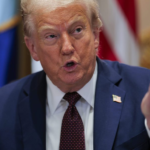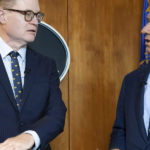That decision raised eyebrows for Eric Chaffee, a corporate law professor at Case Western Reserve University. “Usually a CEO has downside protection if they leave,” he told Fortune. “The fact that he was willing to give that up may provide some insight that what went on here was something he did not want revealed.”
Their attorneys argue that questioning McMullen about the reasons for his resignation could be relevant to his credibility as a trial witness, and could shed light on the “allegedly corrupt corporate culture at Kroger.”
While prying into a CEO’s exit is “somewhat invasive,” Chaffee noted the court could find it justified, especially since Kroger itself tied the resignation to “business ethics.”
In litigation, he explained, “If the other side offers a witness, you want to test that individual’s credibility… to figure out whether they behave in an ethical manner.”
That relevance test weighs heavily against another legal principle: the risk of unfairly embarrassing a witness. But Chaffee noted that in the U.S., there’s a “strong preference that the public has access to judicial proceedings—not just to be nosy, but because transparency makes for a fairer legal system.”
That principle may prevail. However, for Kroger, keeping the reason private could protect its brand and stave off shareholder lawsuits or regulatory scrutiny.
“There’s a cloud that’s left by his departure,” Chaffee said, “but companies sometimes decide that’s better than the damage that could come from disclosure.”
McMullen likely has his own reasons for staying quiet, Chaffee added.
“It might be something embarrassing to him personally, to a family member, or something that could have future repercussions for his career,” he said. “If you’re a CEO and there are news reports out there that you’ve done something you shouldn’t have, getting another top job can become very, very difficult.”
While Chaffee doesn’t expect the case to set legal precedent—“this is probably more factually interesting than it is legally interesting”—he said the stakes are still high.
The plaintiffs’ strategy, he noted, is a common but effective pressure tactic: “Seeking information that may potentially be damaging to Kroger… may incentivize them to settle this case.”









